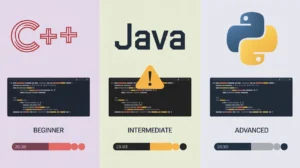Koo Layoffs – A Deep Dive into India’s Newest Social Media Platform
Introduction
History
The co-founders of Koo, Aprameya Radhakrishna and Mayank Bidawatka, both hail from the start-up world and have been involved in numerous ventures. Radhakrishna is well known for selling TaxiForSure, the taxi aggregator he co-founded, to Ola Cabs for over $200 million in 2015. Bidawatka, on the other hand, founded a language learning app called Mindseed and has been an active investor in startups ever since.
Koo was launched in March 2020 as an answer to the lack of localized social media platforms in India. It gained momentum in February 2021 when Twitter was embroiled in a controversy with the Indian government over censorship. Many people flocked to Koo, which presented itself as an alternative platform that upheld freedom of expression. In fact, it has been endorsed by several prominent personalities such as the Union Ministers Piyush Goyal and Ravi Shankar Prasad.
Funding and Investors
Koo has raised a total of $50 million in funding till date. Its latest funding round, Series B, saw an infusion of $30 million led by Tiger Global and Accel Partners. Other investors include Blume Ventures and 3one4 Capital. It has also received backing from prominent entrepreneurs such as the founders of Zerodha and Bookmyshow.
Performance of Koo
Koo has been performing well since its launch. It saw a surge in downloads after the Indian government’s tussle with Twitter. It has also been aggressively expanding its user base by partnering with state governments, universities and celebrities. It is available in several regional languages and has a user-friendly interface. However, the recent layoffs have raised concerns about its sustainability and growth.
Reasons for Layoffs
Koo has not released an official statement about the layoffs. However, reports state that it had to lay off 78 employees due to funding crunch. The company has been facing intense competition from established players like Twitter, and this may have affected its ability to monetize the platform. It has also been noted that Koo’s revenue model is not very clear, which may have impacted its ability to raise funds.
Number of Employees Laid Off
Koo has laid off 78 employees, which constitutes approximately 30% of its workforce. The majority of the layoffs were in the engineering and product development departments. This has raised concerns about the company’s ability to innovate and to keep up with competition.
Statement from Company Stakeholders
Koo has not released an official statement about the layoffs. However, the co-founder, Aprameya Radhakrishna, has taken to Twitter to address the concerns. He stated that the layoffs were a necessary step to streamline the company’s operations and that Koo would emerge stronger from this. He went on to say that Koo remained committed to serving the Indian audience and that it would continue to innovate and grow.
Conclusion
In conclusion, Koo, India’s newest social media platform, has seen rapid growth and success despite facing stiff competition from established players like Twitter. However, the recent layoffs have raised concerns about its sustainability and growth. The reasons for the layoffs have been attributed to a lack of funding, which has affected its ability to monetize the platform. The company has not released an official statement, but the co-founder has reassured users that Koo will emerge stronger from this. We will have to wait and see how Koo tackles these challenges and whether it can live up to its potential as India’s answer to Twitter.






















